Want More?
Sign Up for updates straight to your inbox! Woohoo!
Anxiety is our body’s natural response to stress. It’s a feeling of worry or fear that everyone will have at some point in their life be it on the first day of school, going to a job interview and even going diving. In fact 25-54% of divers experience some kind of panic at some point in their career.
So if your getting anxious in diving then don’t worry it’s normal! After all strapping heavy equipment and weights to ourselves then jumping in to an environment we can’t breathe in is bound to make you a little fearful the first time you try it.
However when we talk about ‘fit to dive’ we mean the whole body, brain included. It’s always important when diving to consider our mental and emotional state. So how do we deal with anxiety when diving?
Disclaimer: I am in no way a medical professional. These tips are acquired from personal experience and observations. If you think your difficulties are related to something more serious like an anxiety disorder then consult a doctor or healthcare professional.
Disclosure: Some of the links in this post are affiliate links. This means if you go through them to make a purchase we will earn a commission at no extra cost to you. Our aim is to help our readers through these links so everything we promote will be high quality products we personally believe in.
Before we jump in the deep end so to speak, a major way to help anxiety when diving is to make sure we are as comfortable as possible given the circumstances. A few ways to do this are:

Not having to worry about your gear is great for reducing anxiety when diving. Not only will it be well fitted and adjusted to your body but you also don’t have to worry about it’s quality and learn how to use new equipment every time you go diving. All things which will make you feel more comfortable in the water.
Now understandably as a beginner you may not want to have to invest in a full kit however two pieces which make the most difference is your mask and fins. I still remember my first few dives in rental gear with the mask pinching my nose and leaking because it didn’t fit me. Then I bought my own and It was like a whole new experience.
However if this already sounds like a great idea then I would recommend reading our beginners guide to buying your first scuba gear where you can also find our mask buying guide and fin buying guide.
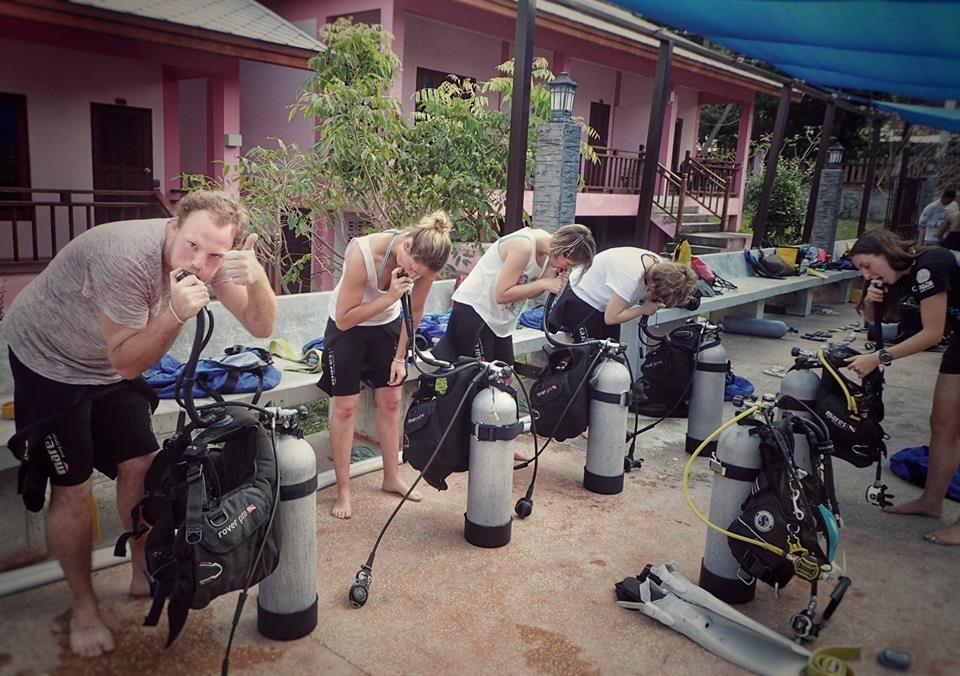
Setting up your own gear not only helps to keep your skills fresh but also gives some peace of mind that your equipment is as it should be . This should help to reduce any worry that something will fail underwater than if someone else set up and checked everything.
If it has been a while or you are unsure of anything don’t be afraid to ask the other divers around you for help. We have all been there!
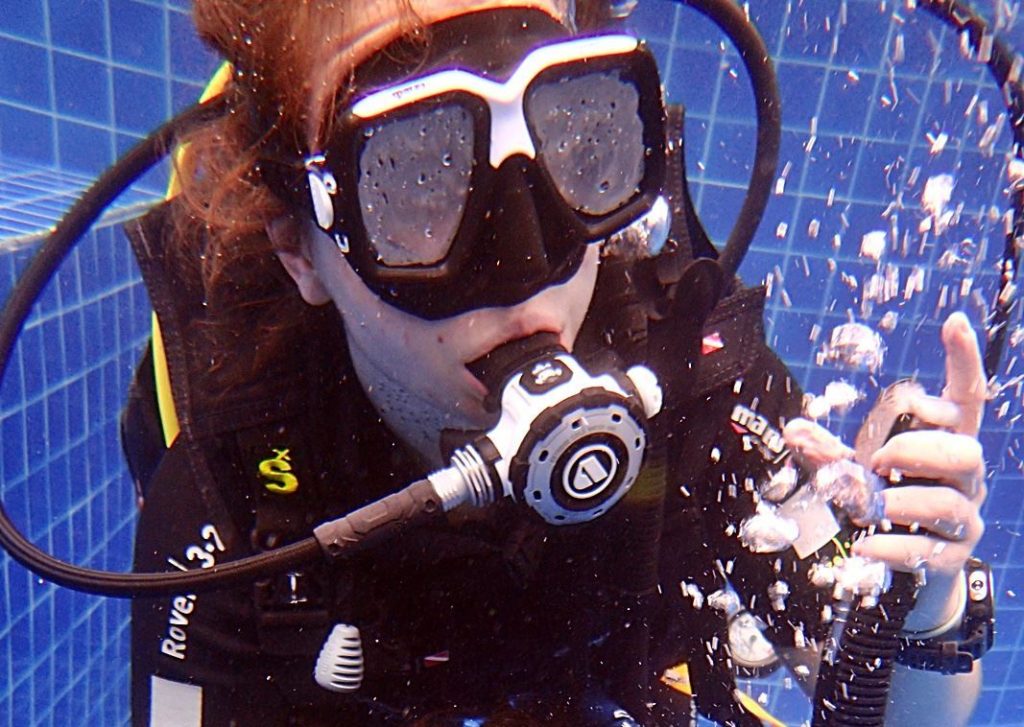
Humans rely on our vision a lot in our everyday lives so being able to see underwater plays a huge part in how comfortable we feel. If we can’t see we’re going to end up feeling more vulnerable and anxious.
To make sure nothing is impairing your vision when diving and also prevent you having to clear it over and over then make sure to defog your mask. You can do this first by prepping your mask if its new. Find out more about how to do this in our mask buying guide.
Then making sure to defog your mask every time you use it. The simplest way to do this is by spitting in it and rubbing it around before rinsing. Or you can use baby shampoo or a special mask defog solution like this one from Stream2Sea.
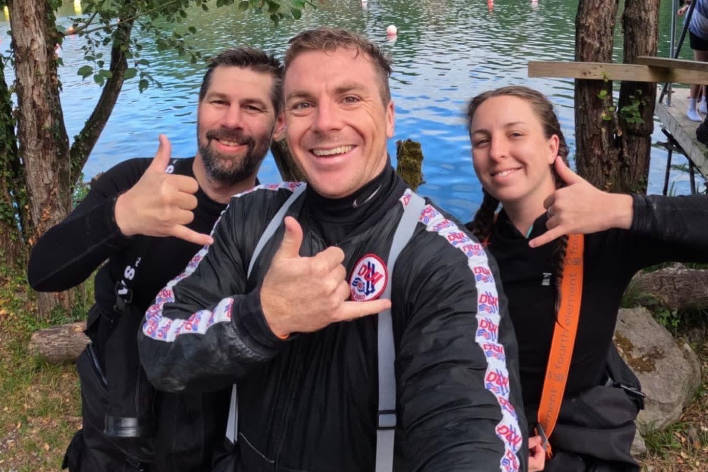
Theres nothing more uncomfortable than being too hot or too cold. So when you are diving make sure to choose the right exposure suit that meets your needs. Check our guide to choosing exposure suits for more info.
Often times the exposure protection we need for diving also could contribute to us overheating or chilling on the boat. In this case make sure to only suit up closer to the dive site and wet your suit beforehand to prevent getting too hot. If its cold your worrying about then change into dry gear as soon as the dive ends.
Speaking of dressing appropriately also tie your hair back if you can to prevent it being a distraction and a hazard. You can find our best tips in our diving hair tutorials.
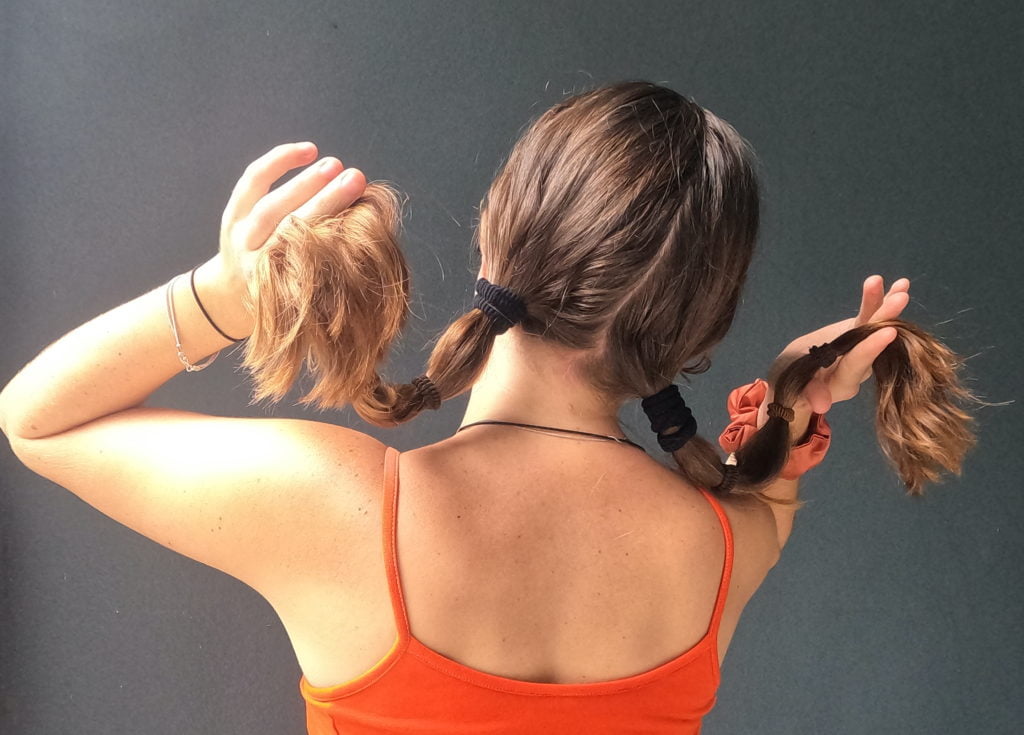
For divers with long locks, hair can be a huge distraction and even a hazard if not managed properly. I even knew someone who got their ponytail stuck in their first stage and had to cut it off with a knife!
So to save you from stressing out, make sure it is up and out of the way by following our how to care for your diving hair guide.

Trust me on this one being seasick is one of the worst feelings if you are trying to enjoy a new hobby. Sometimes it can be that you still feel nauseous under the water.
To avoid this and prevent anxiety and panic from taking over then make sure to take any seasickness treatments before your trip. This way you are in a clear head space for learning to dive. If unsure about how you can do this then this post about seasickness treatments is a good one to read up on.
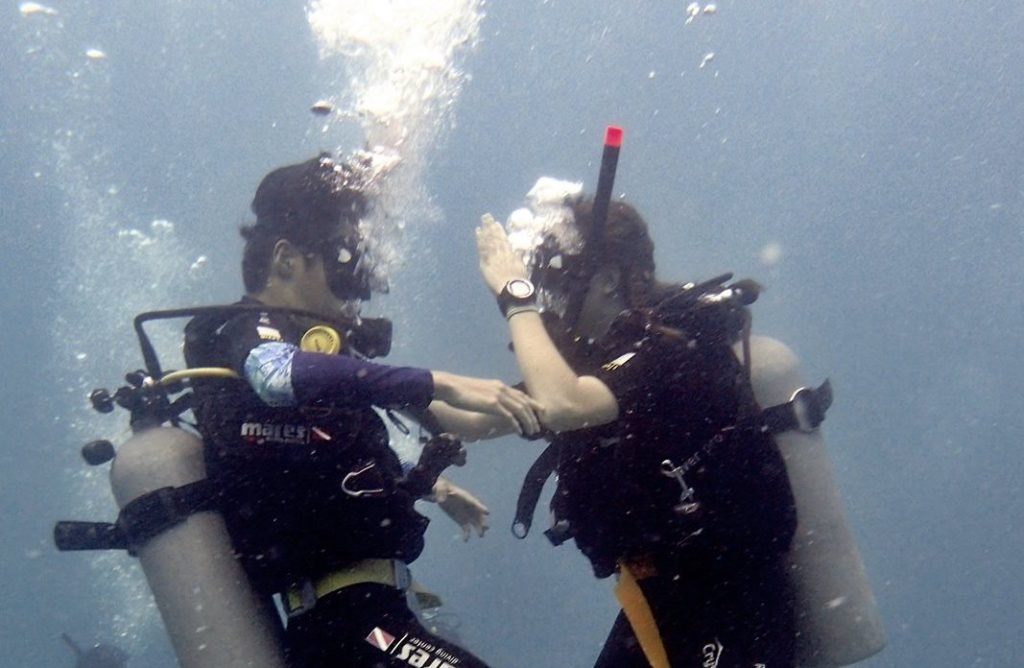
One reflex which takes over when diving is the feeling that breathing underwater is wrong and we need to get out of there.
Often in these circumstances where panic starts to kick in its also common to start to hyperventilate. These short quick breaths means less oxygen is circulating around your body which only increases anxiety.
If this is the case for you then focus on each breath you take in and out or your bubbles. This will distract you from your anxiety and helps to remind your brain that really you are fine. If it’s a good enough distraction you may forget about your anxiety all together.
Another thing which could help is checking your air gauge. This reminds you that as long as you have enough gas you are going to be ok.
Even if you don’t have access to certain equipment practising breathing techniques or submerging your head in water can be small things you can do to get build your comfort when diving.
Diving is a very alien experience. Breathing underwater swimming about near weightlessly under the surface are all completely new feelings for all of us. The ocean is not our natural environment.
However people react differently to these experiences. Some having panic inducing anxiety and others just mild discomfort.
In both instances one way to dispel these feelings is by building your experience in diving. You can do this by:

Feelings of anxiety are more likely to resurface after a long period of not diving. I know even myself after being out of the water a while worry about how sharp my skills will be if something bad was to happen. I feel a lot less of this though if Im in the water and brushing up often.
Practising skills can help you to feel more in control of you situation and also better prepared for if a problem does occur. Being sure in yourself goes a long way in helping to tackle your fears and reduce your anxiety when diving.
Practising skills also builds muscle memory of what do to if and when danger does occur. Meaning in these circumstances you are less likely to panic and injure yourself.
Even if you don’t have access to certain equipment practising breathing techniques or submerging your head in water can be small things you can do to get build your comfort when diving.
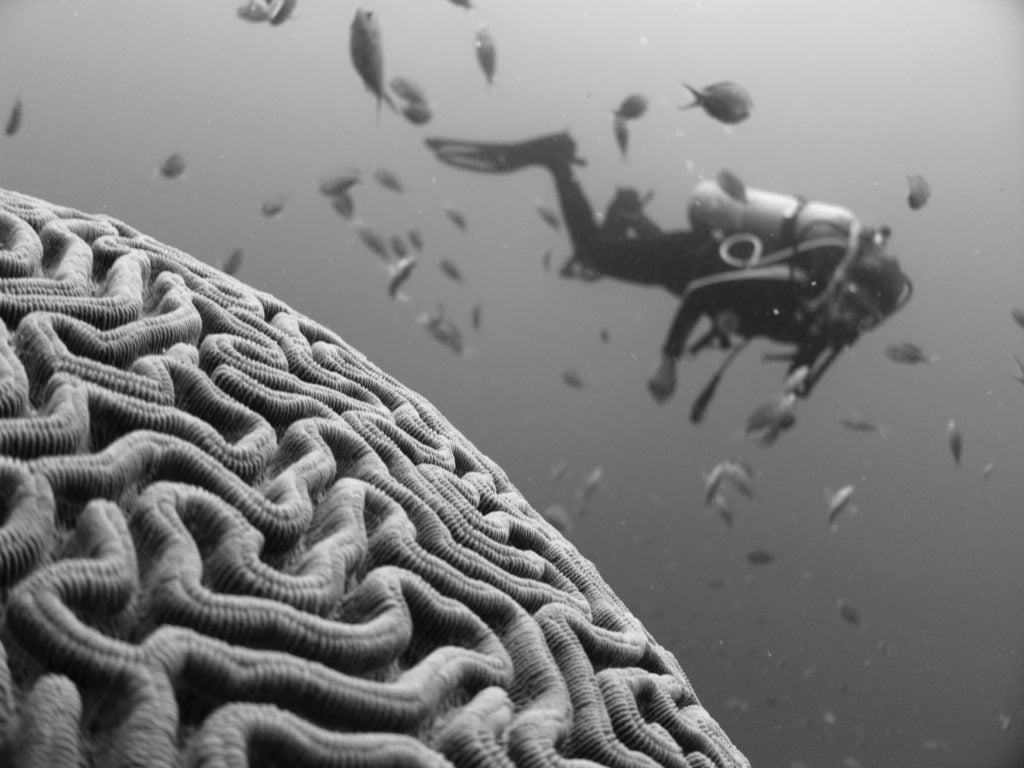
When learning to dive and master certain skills take your time. Just because others master something quickly does not mean you should be the same.
Different people struggle with different things and a lot of the time there are no quick fixes. Be patient with yourself and practise when you can. With time you will build your experience and skill to a point where hopefully your anxiety will fade.
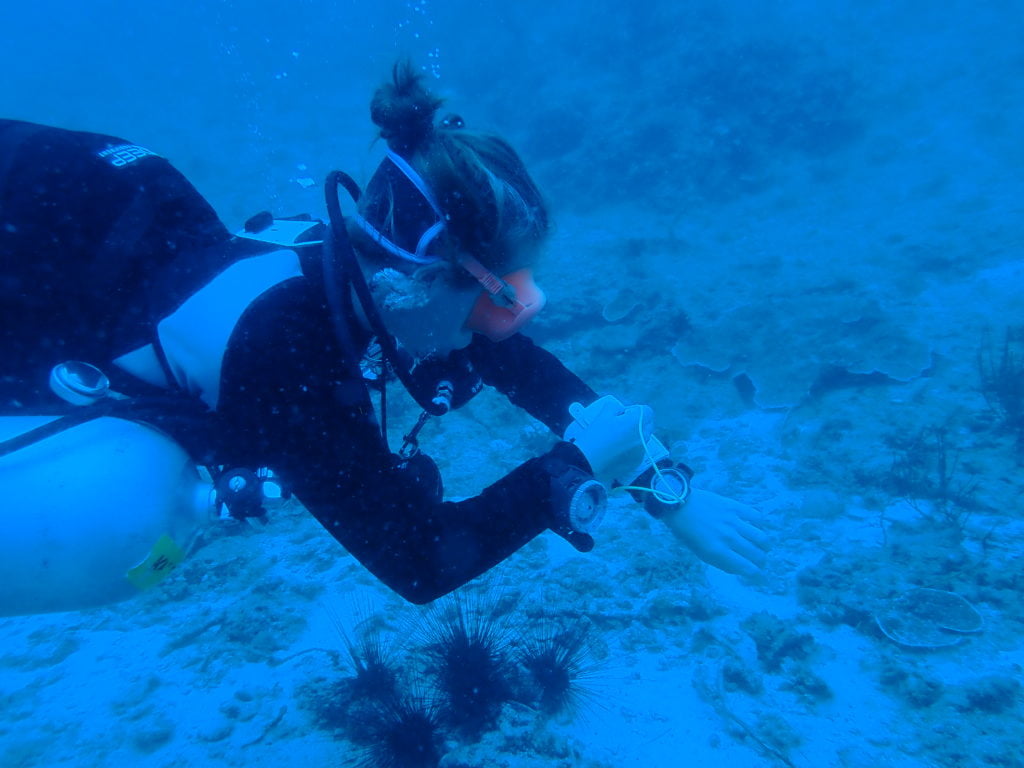
Feeling unprepared and out of control can easily bring on feelings of anxiety which lead to panic. Staying within the limits of your qualifications and comfort are therefore very important.
Often divers will put themselves into these situations because of peer pressure. So don’t be afraid to say no. Even if you are already on the boat. Even if you are already in the water.
Also aim to focus on one thing at a time. Don’t rush things and try carrying cameras or taking new courses before you are ready. This is a sure fire way to start feeling overwhelmed and anxious.
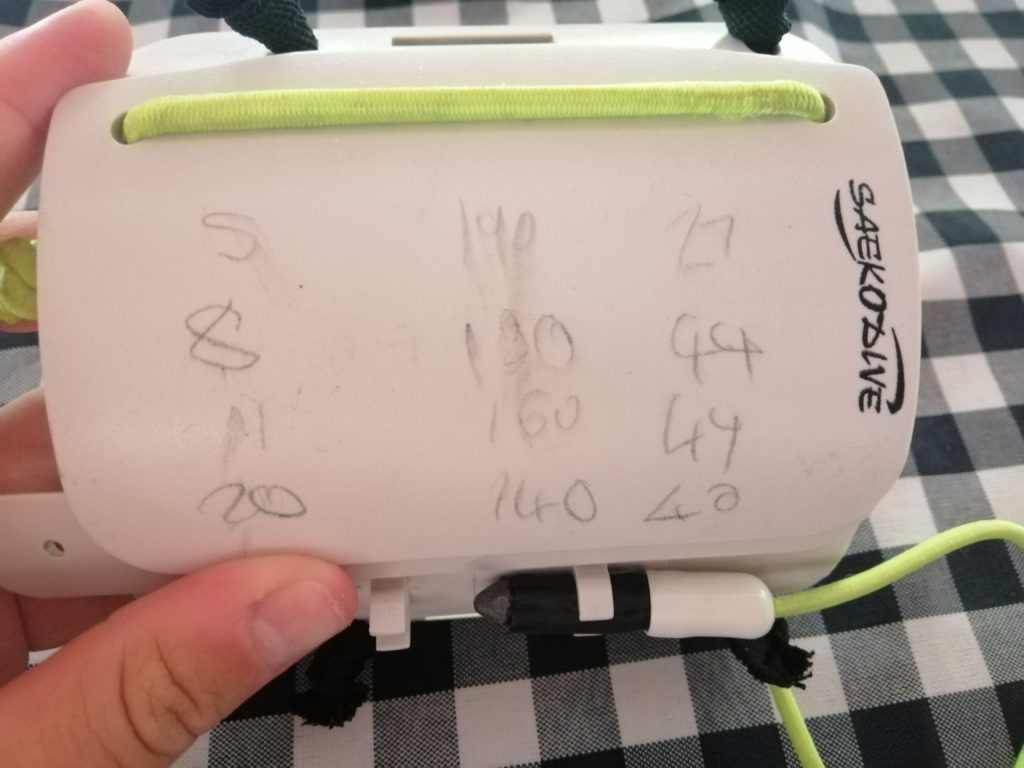
If you have anxiety then thinking of problems shouldn’t be too hard. However what is equally important is visualising the solutions.
This is a popular method that even the most experienced divers use when heading out on a dangerous expedition. By visualising these situations in your head and coming up with solutions beforehand you will feel a lot more prepared when you do get in the water.
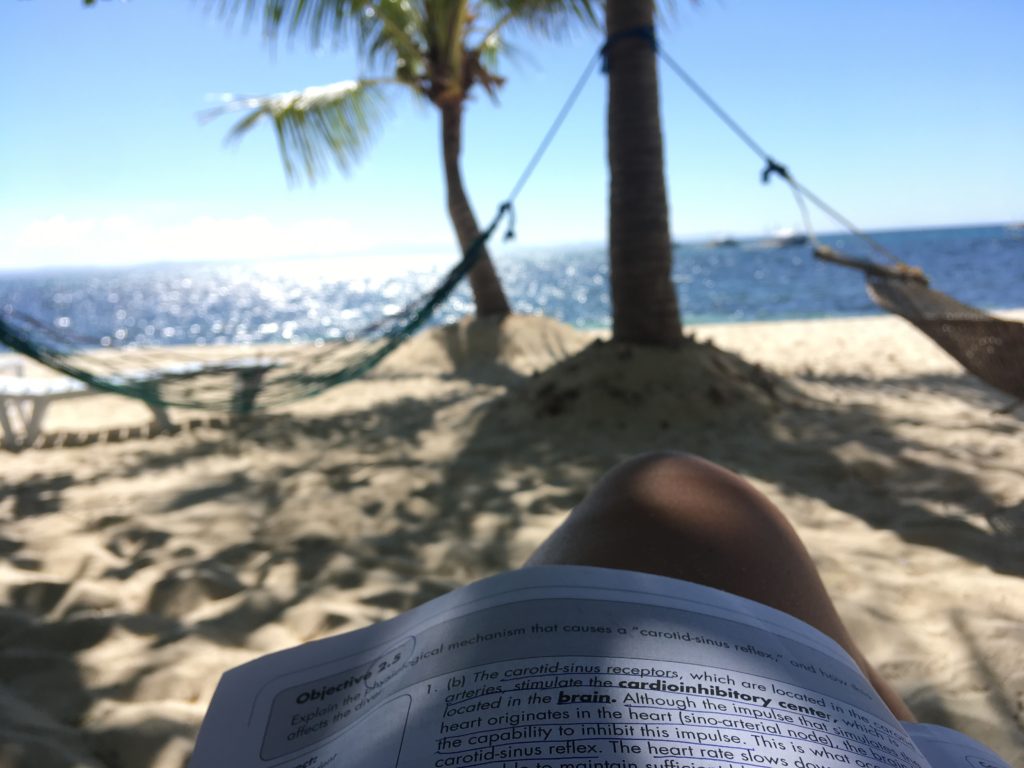
One really useful thing you can do when tackling anxiety is to ask yourself what your fear is and why you have it. If it’s a fear of marine life for example then reading up more about them and their behaviour can do wonders in dispelling your worries. Our online courses and other blog posts are a great place to start.
Also by building on your knowledge base and learning from other peoples experiences you can start to feel more informed and comfortable in your own diving.
It also means you have a much better understanding of the principles of diving should something go wrong. You can make much more informed and safe decisions.
So hopefully you are as comfortable as you can be in the water but a vital step to take when combatting anxiety when diving is communication.
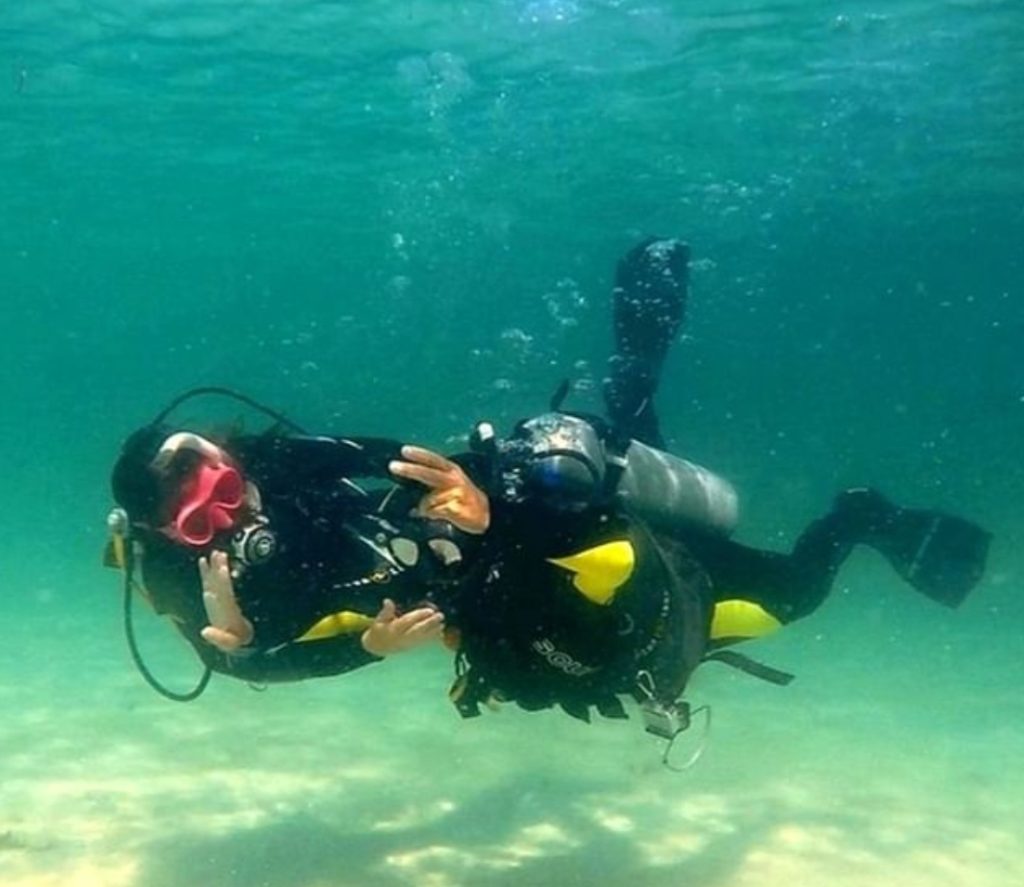
Every diving instructor is different. They have different methods of teaching and personalities which all contribute to how students learn.
So finding an instructor who understands your struggles or is patient and encouraging can be an amazing help in dealing with diving anxiety.
If you have already started your course and struggle with the way your instructor teaches there is no shame communicating this to your dive centre. After all at the end of the day it’s your course.
Four things you should let your diving instructor know is:
How you are feeling. This enables them to be more aware of your struggles and know when they maybe need to be a little more involved.
What your triggers are. For example if the mask skills make you want to panic or you don’t like steep drop off let them know. This enables them to help avoid things that trigger your anxiety or help you overcome those fears.
How they can help. If you have found things which personally help you, like physical contact then tell your diving instructor. This way they can much more effectively help you when anxiety rears it’s ugly head.
Lastly make sure they communicate with you what the dive plans and procedures are. This helps you to feel more in control and aware of the steps to take when something goes wrong. If they have explained them to you and you still don’t understand then ask until you do. Your diving instructor is there to teach, they don’t expect you to know everything right off the bat. Otherwise you wouldn’t be taking the course!
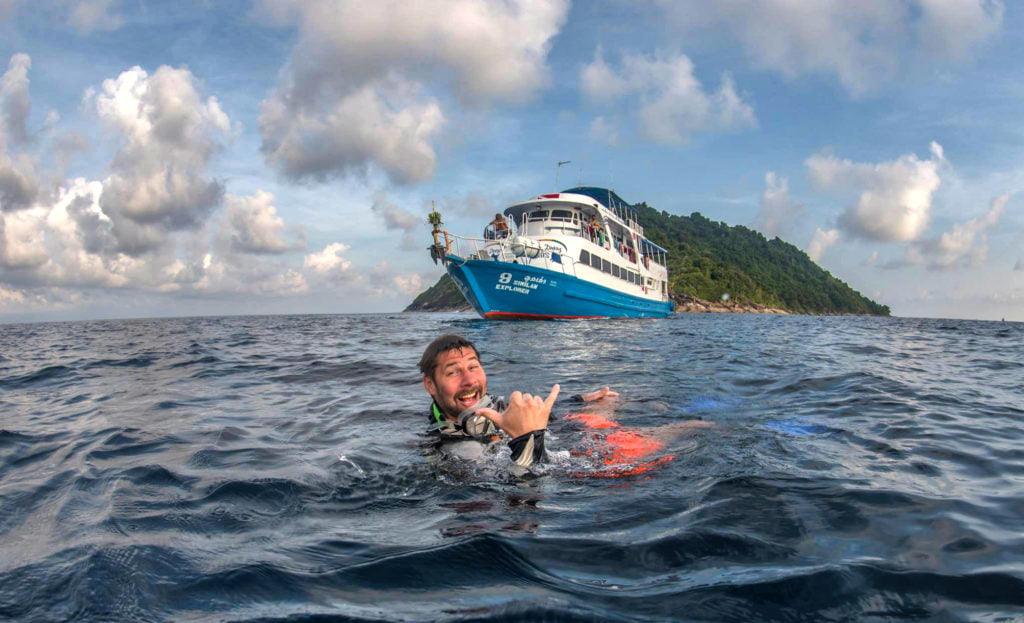
Peer pressure can be a huge stressor in diving. Even when it’s not obvious.
Finding a buddy who does not force or maybe make you feel bad for staying within your skills and comfort levels is a great way to build confidence in diving.
On that note having a buddy who does do those things can be detrimental to your mental health. So avoid people who don’t understand your needs. You should be able to cancel or drop out of a dive without any added stress from the people around you.
Also communicate with them the same things you would your dive instructor. Let them know your triggers and what calms you down. If diving in a group it’s likely they will be the first to notice and be able to help.
Even better if they are slightly more experienced than you as they hopefully will have the skills and knowledge to support and stand up for you.
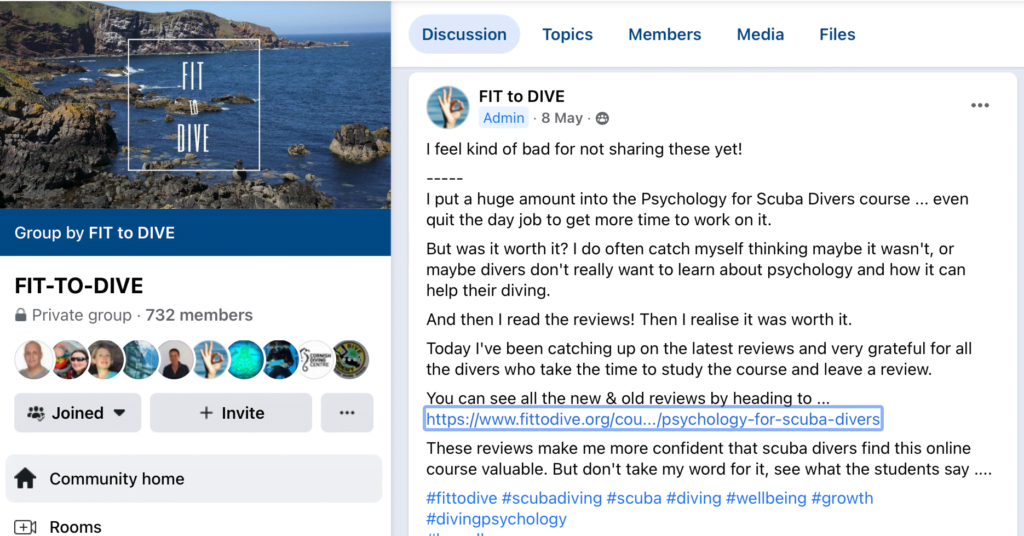
Sometimes it can be a little lonely if it feels like you are the only one in the group struggling with anxiety. However the truth is that lots of divers do. In fact the likelihood is that there are loads of people out there struggling with the same problems you are.
Although the tips in this post can be incredibly useful, nothing compares to connecting to someone who is in the same boat as you are. Therefore reaching out to others with diving anxieties can be a huge help.
Sharing experiences and tips you both find useful can not only make you feel less alienated from the sport but also help you to find a more unique perspective on your issues.
If you don’t know how to get started then a great place to look is in facebook groups. Just be wary of your audience and that it’s a safe place to voice your worries. Unfortunately in some places and people are still very old fashioned and opinionated when it comes to sharing emotions. Posting messages in there could only worsen you feelings of anxiety.
If this is still to a big step for you then always feel free to contact me either in the comments or by email.
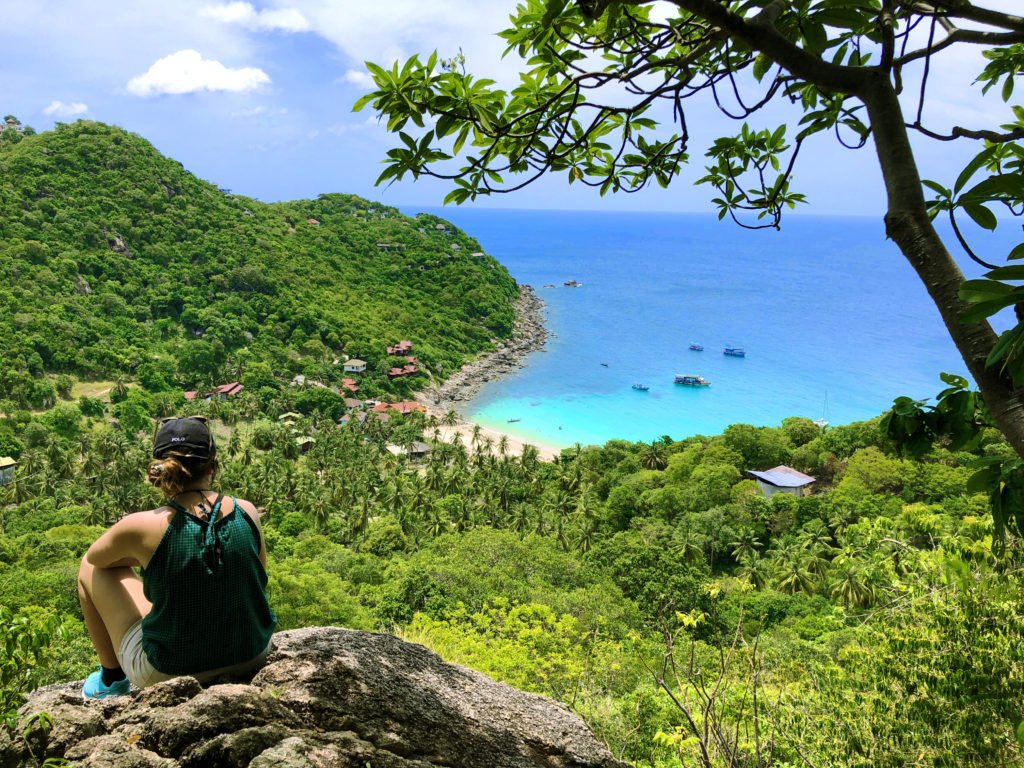
Being stressed, scared and anxious is horrible. It can leave you feeling useless and embarrassed and in some cases completely put you off learning to dive. So it’s important to remember It’s completely ok to feel this way.
In fact keeping in mind how powerful and beautiful the ocean can be is important in making sure we don’t put ourselves in dangerous situations. Even experienced divers get anxious sometimes.
However that being said it’s important that we recognise when we have anxiety and why we are feeling this way. Physical and mental health are both incredibly important in maintaining both our safety and comfort when diving.
If you think your difficulties are related to something more serious like an anxiety disorder then consult a doctor or healthcare professional. If you are diagnosed with an anxiety disorder you will need need to disclose this on the medical form and get signed off by your doctor before you are fit to dive. This is to make sure that not only you but your instructor are safe and comfortable when diving.
One thing that helps to focus me when I am maybe feeling a little anxious about something is reminding myself that panic is the worst thing I could do for myself. In fact panicking is a short circuit response which is my the biggest danger.
So before I need to tackle any problem I’m facing I take a moment to clear my head, make sure my breathing is ok and then get on with sorting stuff out. Even if I don’t know what the solution could be Its a small step I can take in the right direction.
So if you have any tips or advice then please feel free to add them to the comments below. They may be a great help to someone struggling with the same thing.
Also check out these great Phycology for Scuba Divers Courses!
Sign Up for updates straight to your inbox! Woohoo!